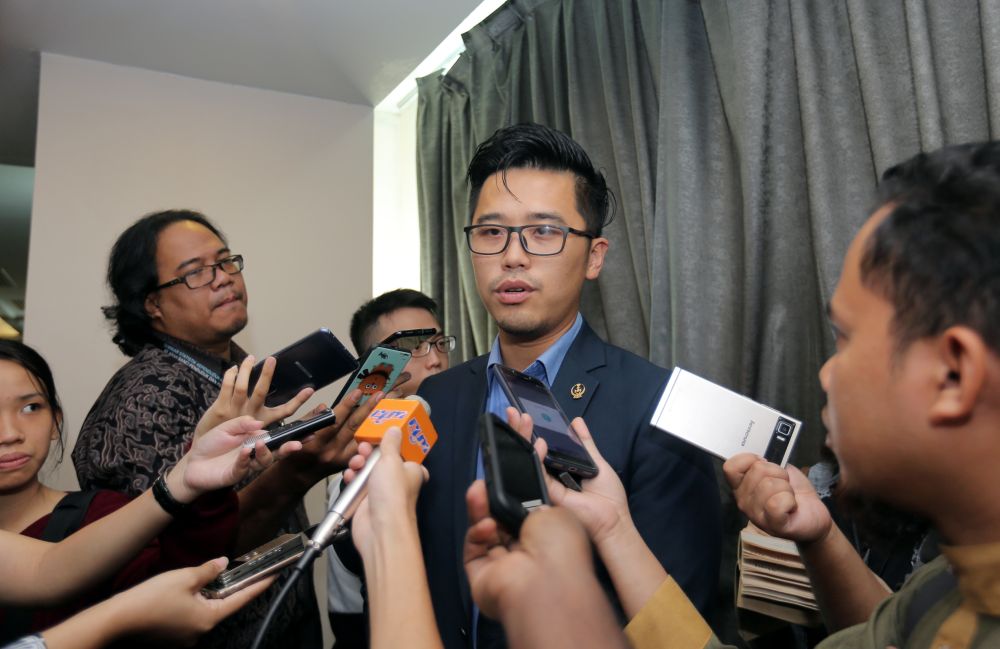KUALA LUMPUR, Dec 28 — The police’s application to obtain a restriction order for Chinese educationist group Dong Zong’s planned congress violates their rights to freedom of speech, the DAP said today.
DAP National Socialist Youth (DAPSY) chief Howard Lee claimed authorities had gone against article 10 (1) (a) which states that every citizen has the right to freedom of speech and expression and (b) all citizens have the right to assemble peaceably and without arms.
“While the police have the right to take a view on policy and security risks, it should not take actions tantamount to curb freedom of speech, especially when it is over a matter of public policy,” Lee said in a statement.
He added that the federal government has been engaging with Dong Zong at several levels over its planned Chinese Organisation Congress (COC) which was scheduled to be held today.
“The police’s decision to apply for the restriction order sets a dangerous precedence for Malaysia Baru and is nothing short of an overreaction.
“They (police) should be protecting Dong Zong’s right to assemble peacefully, just like the organisers of Kongres Maruah Melayu were protected. The right to differ between citizens is the backbone of any democracy,” he said.
Around 1,000 people from representatives of school boards, parent-teachers associations and alumni associations, to those from the Malay and ethnic Indian communities, were expected to attend the planned congress today.
The organisation’s refusal to heed advice that it cancel its conference has caused concern that tensions could escalate among conservative and hardline Muslim groups.
In agreeing with Lee, DAP advisor Lim Kit Siang also said that the police should not have banned the closed-door meeting although they were under intense pressure because of irresponsible and incendiary threats by extremist quarters.
“The police now have a greater responsibility to show they are even-handed and take action against those who had without cause threatened unrest over the closed-door Dong Zong meeting,” said Lim in a statement today.
It was reported yesterday that Islamist party PAS lambasted Dong Zong for allegedly behaving unethically in a multi-ethnic society, ahead of the COC.
PAS president Datuk Seri Abdul Hadi Awang had warned the ethnic Chinese group to remember that its members are living in “a Malay world”, and therefore should not overstep its purported boundaries.
PAS’ ulama wing Nik Muhammad Zawawi Salleh labelled Dong Jiao Zong as “anti-national” and a racist organisation for planning this weekend’s protest against the teaching of the jawi script in vernacular schools.
In an open letter, PAS information chief Kamaruzaman Mohamad had also urged the Home Ministry to ban Dong Zong.
Following these statements made earlier, Lim has called for the crisis over the Jawi script-related matters to be resolved in a peaceful manner.
“As I have said earlier, while Vision 2020 will not be achieved next year which would begin in four days’ time, let more and more Malaysians regardless of race, religion or region, try to be Bangsa Malaysians and resolve the crisis over the Jawi issue in a peaceful and consensual Malaysian manner,” he said.
Ahead of its planned congress today, Dong Zong had released a 16page digital booklet in Bahasa Malaysia which offers a detailed explanation on its stand over the introduction of Jawi script lessons in vernacular schools.
The booklet entitled “The Jawi Script Issue: Defending the rights of School Boards to Manage Vernacular Schools” discusses reasons for its continuing objections towards the introduction of Jawi script in the Bahasa Melayu subject.
In the booklet, it also claimed that the Cabinet and the Education Ministry are ignoring the rights and powers of the school boards and are refusing to include them in the decision-making process over the introduction.
The booklet also highlighted Dong Jiao Zong’s repeated attempts to engage the Education Ministry on the issue of the Chinese schools’ boards involvement in the decision-making process but have failed to get a response.
It explained how the Education Act 1996 provides for the school boards’ role in determining policy in vernacular schools, but is being violated.



















